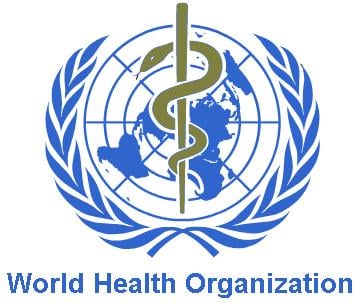In late October this year, OSHA released its new web resources to help employers better protect their workers from hazardous chemicals. Tens of thousands of workers are made sick or die from occupational exposures to thousands of hazardous chemicals that are used in workplaces. While many chemicals are suspected of being harmful, OSHA only regulates a small number and unfortunately, the agencies exposure standards for these hazards are out-of-date and inadequately protective.
Environmental Health and Safety Blog | EHSWire
Topics: Emilcott, OSHA, Transitioning to Safer Chemicals, Annotated Permissible Exposure Limits, OSHA PELs
OSHA, EPA, and ATF Issue Ammonium Nitrate Hazard Advisory
Posted by Shivi Kakar
The Occupational Safety and Health Administration (OSHA), the Environmental Protection Agency (EPA), and the Bureau of Alcohol, Tobacco, Firearms, and Explosives (ATF), issued an Ammonium Nitrate Hazard Advisory on August 30, 2013.
Topics: Emilcott, Ammonium Nitrate Hazard Advisory, ammonium nitrate (AN)
Formaldehyde in Hair Care Products Presents Health Risks to Employees
Posted by Shivi Kakar
A recent OSHA Fact Sheet - Formaldehyde in hair care products found that stylists in three different salons were using Brazilian Blowout Acai Professional Smoothing Solution or Cadiveu Brasil Cacau were being exposed to dangerous levels of formaldehyde. In one salon, tests showed that in the blow drying process, levels were five times the limit set by OSHA. The salons were given citations and two received fines for failure to protect workers from the health hazards of formaldehyde exposure. OSHA gave out other fines and citations for salons that failed to test the air and determine the level of formaldehyde exposure and protect workers properly with training and information on the health hazards and symptoms of exposure.
Topics: Emilcott, formaldehyde in hair care products, OSHAs short term exposure limit (STEL)
Topics: Emilcott, The Clean Air Act, permissible exposure limits (PEL)
New Executive Order—Improving Chemical Facility Safety and Security
Posted by Shivi Kakar
On August 1st, 2013 President Obama signed an Executive Order -- Improving Chemical Facility Safety and Security. A statement published by the McClatchy Washington Bureau, reported that
Topics: Emilcott, Occupational Safety and Health Administration (OSH, EPA’s Toxic Catastrophe Prevention Act (TCPA), Environmental Protection Agency (EPA), OSHA’s Process Safety Management (PSM), Chemical Facility Anti-Terrorism Standards (CFATS), Texas City fertilizer plant explosion
Topics: Emilcott, eliminate fracking loopholes, RCRA (the Resource Conservation and Recovery Act), RCRA hazardous waste disposal guidelines
The World Health Organization (WHO) gathered recently in an emergency committee meeting to discuss MERS coronavirus. International experts worked to come up with some advice for the WHO director general concerning this public health issue of international concern. The committee should have a working plan in place soon.
Topics: Emilcott, The World Health Organization (WHO), MERS coronavirus, Middle East Respiratory Syndrome Coronavirus, MERS-CoV infection
DOT Announces Winners of Worker Safety and Health App Challenge
Posted by Shivi Kakar
In an effort to educate young workers, the Department of Labor's Occupational Safety and Health Administration (OSHA) recently held a contest to build a mobile app. Four winners were awarded prizes between $3,000 and $15,000.
Topics: Emilcott, Occupational Safety and Health Administration (OSH, DOT, Worker Safety and Health App Challenge, OHS Phone Applications
Topics: Emilcott, emergency preparedness, Emergency Preparedness Week, National Safety Council
The Hazard of Heat Stress Is an Employers Responsibility
Posted by Shivi Kakar
Record heat is in the news again which may spur a new round of petitions for OSHA to execute an emergency temporary standard (EST) for a heat stress threshold, followed by a permanent Heat Stress Standard. Petitions for both were denied last summer. Many citizens and watch-dog groups felt that OSHA was simply opting for continued employer self-policing. However, even though there is an absence of a Heat Stress Standard, OSHA can hold employers accountable through enforcement outlined in the General Duty Clause, Section 5(a)(1).
Topics: Emilcott, hazard of heat stress, heat stress is employers responsibility, emergency temporary standard (EST)












